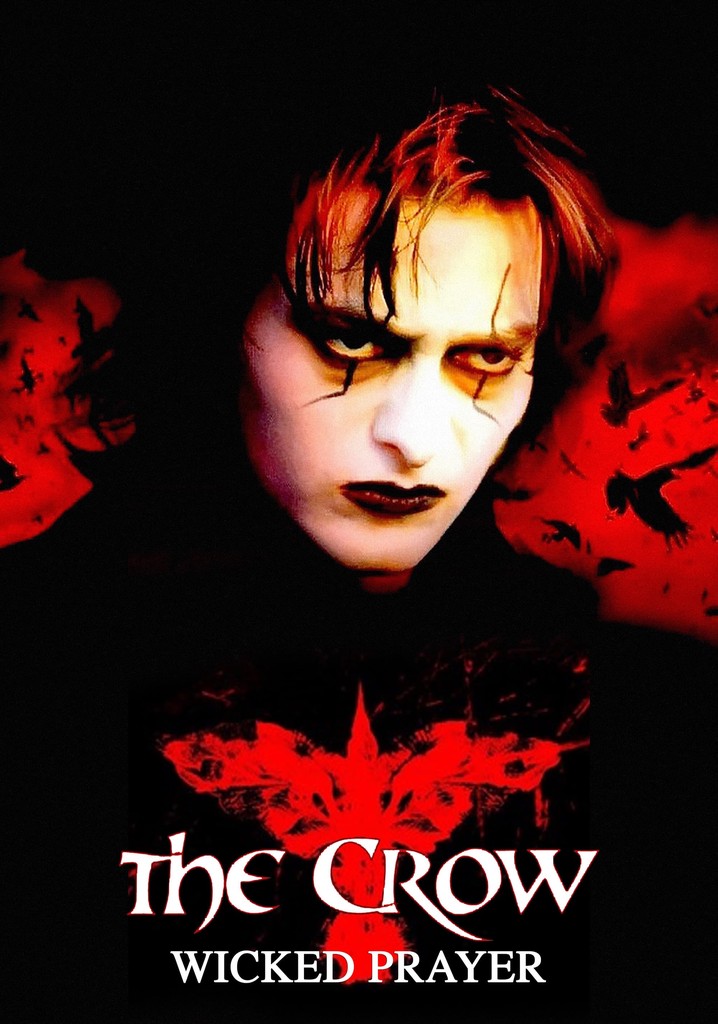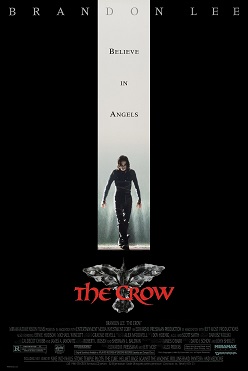A Grave Opportunity
In the wonderful world of Hollywood, death is irrelevant and tragedy is opportunity. In the case of 1994’s “The Crow”, a real bullet inadvertently (or negligently) loaded into a prop gun resulted in the untimely death of the amazingly talented star, Brandon Lee. In the aftermath of this tragedy “The Crow” became an instant classic; a beautiful and transcendent story about undying love and divine retribution that in conjunction with a phenomenal supporting cast and fantastic direction was defined by an angelic and soulful performance by Brandon Lee.
However this tragedy presented a monetary opportunity for the studio Miramax, and under the creatively bankrupt and methodically predatory supervision of the Weinsteins, “The Crow” was made to become a franchise.

A Legacy of Failure
The idea of a crow franchise isn’t a bad one. For instance, it could take an anthology approach where each new installment focuses on an individual who has been wronged and must enact divine justice with a new world, perspective and struggle setting it apart from the others.
Unfortunately in Hollywood the simplicity of an excellent idea can be easily overruled by incompetence, cluelessness and greed. In the case of later “The Crow” installments, most would-be audience members don’t know they exist and if they do, wonder “what the fuck were they thinking?”
The worst of the four installments are “The Crow: City of Angels” (1996) and “The Crow: Wicked Prayer” (2005). In “City of Angels”, a mechanic named Ashe Corven and his son are killed by a devil-worshiping cultist and his gang after witnessing a murder, with the titular Crow bringing Ashe back to set the wrong things right.
“City of Angels” suffers from being a sad and pathetic imitation of the original classic with everything positive in that film being negative in this one. The grim, yet grounded city of Detroit is replaced with a goofy and out-of-place post apocalyptic Los Angeles. The protagonist’s gradual and satisfying acclimation to his supernatural abilities is replaced with an underdeveloped and unexplored apprehension of power. The thematic usage of love, friendship and goodness is replaced by a half-assed if not non-existent relationship between the hero and Sarah, a headstrong little girl from the original who unnecessarily returns as an exposition sprouting damsel.
It is said that the film’s quality is a result of the Weinstein brothers’ commonly-known practice of tampering with a director’s vision. However, I believe that the film would’ve failed regardless. Being a shadow of the original, to me, is worse than being a purely garbage movie.
On the topic of something being garbage we have “Wicked Prayer”, a low budget and low credibility sequel that takes whatever potential goodwill the concept and brand had and shits all over it. In this “film”, a paroled man named Jimmy Cuervo tries to restart his life by leaving the reservation he lives on with his girlfriend but is killed by a satanic biker gang. As we all know by now, the crow brings him back and justice needs to be served, or something.
On the flipside to the terrible judgment and greed that drove “City of Angels”’ inception is the incompetence and cluelessness that gave way to “Wicked Prayer”. The respect is gone, the action is lame, the acting is laughable. To see something once associated with greatness as a joke, is a cinematic fate worse than death.
Glimmers of Greatness
Now that we’ve covered the franchise at its worst and most disappointing I can mention the two entries that, in my humble opinion, showcase the potential of “The Crow” concept despite their faults and/or perceived level of quality. “The Crow: Salvation” (2000) and 2024’s “The Crow”.
“Salvation” tells the story of Alex Corvis, a young man who was wrongfully sentenced to death after being framed for the murder of his girlfriend. After being resurrected by the crow, a friend helps to uncover a conspiracy involving corrupt cops.
For me, “Salvation” is the best in the franchise because it tells a good story and sticks to it. It has a light, mysterious approach that helps to further engage viewers, it has serviceable villains in the corrupt police force, decent action and a nice performance from actor Eric Mabius as Alex Corvis. While not amazing or great,“Salvation” proves that a worthwhile sequel is possible while also being an admirable and decent film on its own.
Finally, we have the 2024 reimagining. It was locked in development hell since 2008 struggling to pin down actors, directors and release dates before it landed both critically and commercially flat on its ass this year. Every living thing on this planet seemed to know it was gonna fail, except me. The film reimagines Eric Draven and his lover Shelly as troubled outcasts who become doomed lovers, with a dark, manipulative figure from Shelly’s past initiating their deaths with the crow returning Eric to life to right this wrong.
It is plagued by awkward dialogue, nonexistent pacing, an overlong runtime and a skewed narrative yet it introduces ideas unique to this interpretation, themes of damnation and redemption and how the crow’s mission goes beyond avengement and divine retribution and is tied to the fates of those who were wronged. The concepts and themes are underdeveloped and mostly surface level but regardless,I was personally impressed by these ideas because it shows that efforts were made to make this film meaningful and worthwhile. Sadly, this was buried under the weight of its protracted development.
At the end of the day it should be understood that the idea of a sequel to the original “Crow” is not what we were afraid of but the idea that some uncaring studio head or megalomaniacal director would ruin and taint the legacy and meaning of something that a man gave his life for.
“City of Angels” and “Wicked Prayer” are the films that justify these fears and destroy the creative attempts to produce new and unique “Crow” stories. If those who adore the original open their minds and focus on the genuine good of “Salvation” and even the 2024 reimagining, then they will be surprised to find not only is it possible to honor the classic but that there is something worth admiring and even respecting in their attempts.






